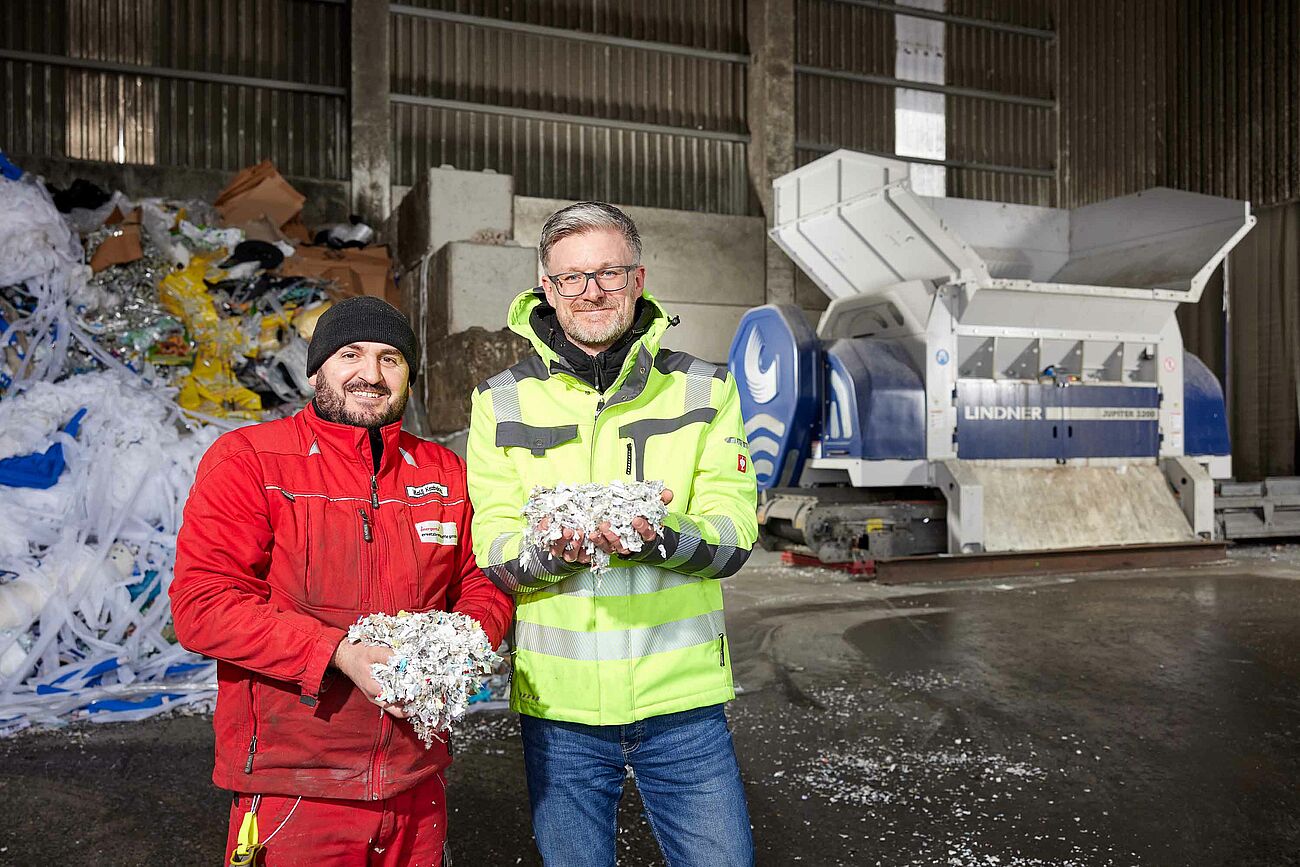Spittal/Drau (Austria), March 2024. energenta ersatzbrennstoffe gmbH, headquartered in Ochtrup, Germany, has been producing high-calorific solid recovered fuels (SRF) since 2004. Five years ago, the business model was expanded to include mechanical recycling of plastics. Using an additional Jupiter 3200 primary shredder, installed in November 2023, the company wants to tackle the growing challenges in the recycling industry.
Ochtrup, a town with a population of around 20,000, is located in the idyllic north-western Münsterland region, on the border with Lower Saxony and the Netherlands, and has also been the main site of energenta ersatzbrennstoffe gmbH since 2004. Ever since its foundation, the company and its 30 employees have been turning production waste into particularly pure, high-calorific refuse-derived fuels (RDF) and solid recovered fuels (SRF) at this site for the cement and lime industries’ rotary kilns. ‘We have been operating two SRF production lines for more than 10 years, each consisting of a Lindner Jupiter 3200 or a 2200 primary shredder as well as a Lindner Komet 2800 secondary shredder. The systems have a compact design and are connected in series. Thanks to small knives and fine screens, we achieve a very fine, homogeneous and clean output material,’ explains Axel Möhring, Managing Director of energenta ersatzbrennstoffe gmbH since 2020. Each line produces around 8 tonnes of SRF per hour in a two-shift operation, 6 days a week.
From high-calorific SRF to pure recyclate
In the beginning, everything was about high-calorific solid recovered fuels (SRF), but five years ago the company also started mechanically recycling plastics. ‘We are very pleased with how Lindner’s shredders produce SRF, but due to the demand for high-quality recyclate, we have gradually expanded our business model,’ adds Möhring. ‘We are currently focussing on mechanically recycling plastics that are not composites.’ Composites such as liquid packaging board, pharmaceutical blister packs or multilayer films consist of different layers of material. Chemical recycling already offers new solutions, but for the most part these materials are still largely used as high-quality fuels that replace fossil fuels, helping to reduce CO2. Mechanically recyclable plastics, on the other hand, are pre-shredded with a Lindner Micromat, ground with special mills for production, and then regranulated at the Nuremberg site, another one of energenta’s locations.
Excellent recyclate quality requires a high level of homogeneity. This is achieved by post-sorting the delivered materials and a box system introduced by energenta to collect recyclable materials separately. ‘High recyclate quality starts with the collection process. We therefore launched our own collection system for small and medium-sized companies to store different types of plastic in different boxes. This way, companies can make a valuable contribution to the circular economy, while we receive properly sorted, valuable materials that help us achieve a high processing quality. A win-win situation for companies and the environment,’ says Axel Möhring. ‘As a recycling company, it is really important for us to do something for our environment and, what I would describe as responsible production that is fair to future generations.’
Lindner’s Jupiter 3200 – an investment in the future
The plastics industry is currently facing a number of challenges. Upcycling, process optimisation and energy efficiency are just some of the topics being discussed in the industry. Also chemical recycling is the talk of town and seeks to recover materials that were previously classified as non-recyclable, provided they are of the same material type. ‘Material streams on the market will change – and with them the tasks we have to master. Thanks to the new Jupiter 3200, we intend to broaden our future offerings so that we can flexibly expand our range to include other recycling streams,’ adds Möhring. ‘As energenta group, we are very pleased with Lindner. Lindner machines are superbly designed and offer high-quality craftsmanship. We very much welcome the modular design as well as the outstanding, fast service. Lindner is prepared to invest in joint trials and break new ground. That’s what makes Lindner a good and reliable partner.’

Lindner Jupiter 3200 – reliably high output and consistent particle size
The Jupiter 3200 is equipped with a cutting system sporting 4-fold usable pointed knives, particularly resistant to non-shreddables. Thanks to the countershaft drive and flywheel energy storage this machine ensures a consistently high throughput, even with tough materials. In the picture: Axel Möhring, Managing Director energenta (right), with Vitalij Kozhakaru (left) at the Ochtrup site.
More Information | Press Contact:
Martina Greschonig | martina.greschonig(at)lindner.com